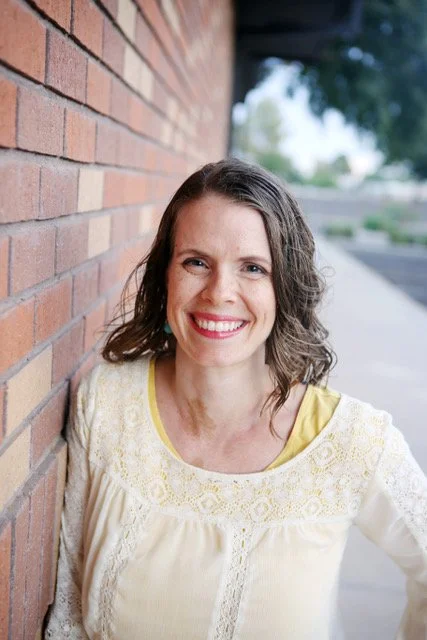Emotional Co-Regulation for Neurodivergent Parents and Children
I don't know about you, but as a highly sensitive neurodivergent person myself, emotional regulation has been something I've struggled with most of my life.
How do we navigate these big feelings? Not only for ourselves, but also as parents showing up for our kids who so often have these big feelings too. How do we manage when they have big reactions that can trigger so much within ourselves? How do we self-regulate while at the same time teaching our kids to self-regulate? And by the way, what does self-regulation actually mean and what does it look like?
These questions have had such a significant impact on me as a child, as an adult, and now as a parent. So in this episode I’m sharing some of the answers I’ve learned on my lifelong journey so far. We are walking this path together as neurodivergent, highly sensitive people who experience this world so intensely, and I hope this information can support and empower your journey like it has for mine.
Getting Curious About Our Own Neurowirings
Neurodivergent people often have more highly sensitive nervous systems. We're going through the world experiencing it differently than your average person, and even every neurodivergent profile is going to be a bit different than the next. So the key here is to get curious about our own neural wirings, our own responses, and our own feelings before we can figure out how to support ourselves.
But it doesn't always have to be as complicated as we think. We know so much about our own bodies and what works for us based on what feels good and what doesn't.
When we can get in tune with that rhythm and start becoming more self-aware and self-reflective as the adults in children's lives, we begin to empower ourselves and in turn empower our children. We’re empowering them to navigate their unique experience in the world without shame or judgment, but rather with compassion and understanding.
Having Self-Compassion and Awareness of Our Most Common Triggers
If you're anything like me, you're someone who can easily feel triggered and overwhelmed. You might be very sensitive to your environment. Maybe it's noises, or being overwhelmed by too many people, or transitions from one thing to the next too quickly. Or it could be your child's reactions: the meltdowns, the demands, or just those big feelings that immediately put you as the adult in this place of fight or flight.
Have you been there? Me too. And I want to preface this by saying that none of this is a blame shame game. It's a self-discovery + working-together + getting-curious game.
“Do the best you can until you know better. Then when you know better, do better.”
We can only do what we know and what we've been taught. So if no one has taught us how to regulate our own emotions, how can we be expected to know how to do it? How can we be expected to then teach young children how to do it?
So let's not be hard on ourselves. Let's give ourselves the self compassion that we deserve and just get curious about how we can show up in a new way that works better for us and for the kids that we're caring for.
Emotional Regulation Starts With Us
We can’t expect a child who's having big feelings to self regulate, especially if we haven’t created the space for that child to co-regulate with us or if we haven't modeled and taught that child how to calm their body.
These old deficit-based strategies that we're all familiar with really just add fuel to the fire. I’m talking about the ones where we're punishing kids for big emotions, telling them to go to their room or go to timeout or withholding love and affection. All of those things are only going to make a child feel more dysregulated.
“If we’re dysregulated, there’s no way we are going to be able to show up for the child in front of us and help them regulate. Instead we’re going to be reacting to their behaviors rather than responding from a curious place.”
So as the adult in this situation, whether you're the teacher, the parent, the caregiver, or the leader trying to support this child, the number one step is always getting curious about what's going on inside your own body.
What are the big reactions that are coming up in ourselves in response to the kid's dysregulation? How can we regulate those and calm ourselves first?
So we start by getting curious about ourselves. What triggers our reactions and how can we be compassionate to ourselves about what is happening in our body?
And sometimes we may even just say to that kid, I'm feeling overwhelmed. I'm feeling angry right now. I'm going to go step away and have a few deep breaths so we can come back and I can be here for you and we can solve this problem together.
And that's really permission-giving for the kid. Because when we're reacting to their big reactions with our big reactions, we're teaching them that big, big reactions are the way we handle the discomfort we feel inside. And then we're mad at the kid the next time it happens for reacting the same way we just reacted. So it really does come back to ourselves.
Ways we can show ourselves compassion when we're experiencing a big reaction:
Taking deep breaths through the reaction
Going on a short walk, or even just stepping outside for a breath of fresh air
Meditation. It doesn’t have to be long, it may only take a couple minutes to ground yourself in the space and center yourself
EFT tapping
Understanding What Causes Emotional Dysregulation in Our Children
Once we've calmed our own nervous system enough that we can show up and hold space for the child, we can get curious about what's going on for them.
They're dysregulated because they're experiencing something in the world that is uncomfortable to their bodies and they don't know how to get out of this space. They’re thrown into fight or flight mode. They need us to be the detectives and find out what’s happening on the inside.
They need us to hear what their bodies are trying to tell us, and if we’re punishing, responding to, correcting, judging, and labeling their reaction, we’ll never know what's causing that behavior and won’t be able to remedy the situation. All while making that child feel more alone, more unseen, and probably more dysregulated without learning any sort of coping skills to help them in the future.
“Find your calm. Share your calm with your kid. That might look just like sitting with them, giving them a hug, putting your hand on their heart, and their hand on yours, and breathing together.”
Next, when we understand the cause of that behavior, we're able to get creative about solutions. We're able to see, for example, that transitions are making our child anxious. And we can validate their experience: “When we move too quickly from one thing to the next and don't give you time to process that transition, you feel upset inside and you don't know how to handle those big feelings.”
Now we’re both calm so we can have a productive conversation about what we could do differently the next time.
This is where the self compassion for ourselves as adults comes into play again. In this moment, we are doing the best that we can. We're showing up and applying what we know, and that's something to be proud of.
We can give ourselves grace around how we’ve shown up in the past, because there will always be times where we wish we would have done things differently. Rather than beating ourselves up over it or denying it, we can instead love that version of ourselves.
We’re taking what we know now and applying it moving forward without blaming ourselves for not being perfect. And we’re making sure we’re going back to repair with that child when things do go differently than we would have liked.
If you can relate to this, I would love to support you. We can walk through this one-on-one and really get to the root of what's causing some of the behavioral reactions to the dysregulation that’s going on inside.
These reactions are valid responses to our feelings. And so when you need help getting curious about what's causing these responses and what approaches can help you as an adult or you as a parent, I would love to work with you.
So many of us are walking this path, feeling alone, feeling like something's wrong with us. And the truth is — none of us are alone. We're all in this, we're all learning, and we're all growing. Let's come together and help each other out. Let’s normalize these experiences and rally together to make life a bit easier.
More Resources Mentioned in the Episode
Manage Big Feelings With Tapping: how your child can tap on different parts of their body to calm their nervous system
You Might Also Enjoy…
Still curious about anything we mentioned today? I'd love to hear what's on your mind.
It's really a dream come true to have a platform to discuss these issues that are so near and dear to my heart with you. And I'm just so grateful that you're here with me today and ready to support each other on our journeys.


